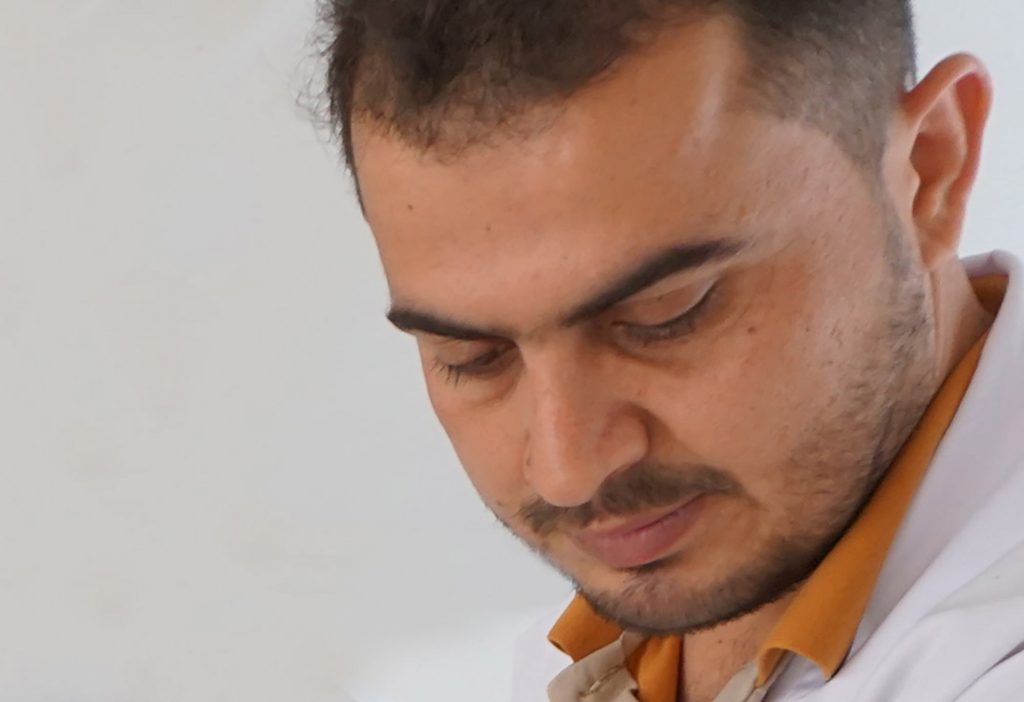by Dr. Fawwaz , General Practitioner in Erbil, Iraq
June 8, 2014 is an unforgettable date for Dr. Fawwaz. It was the day he left Hamdaniyah, his neighborhood in the city of Mosul, Iraq. Together with his parents, his three brothers, and his brother’s wife and four-day-old baby, they fled to Erbil, more than 50 miles away. As a physician at one of International Medical Corps’ Mobile Medical Units in Erbil, Dr. Fawwaz provides medical relief to Syrian refugees as well as Iraqis, who – like Dr. Fawwaz and his family – are displaced from their homes because of the ongoing conflict.
There was heavy bombing. Civilians were targeted, and we all felt we could die at any minute. It is difficult to relay the true sense of what it feels like to live in constant fear of death. It was midnight, and I was working at the public hospital. Suddenly, we started hearing people shouting, “We have to leave! They are coming!”
The director of the hospital ordered us to transfer all the patients to Erbil. My 65-year-old father didn’t want to leave. He feels deeply attached to his neighborhood. He never moved before, but I convinced him to leave because we were in danger. My father and I then ran to his shop to pick the most precious things we had: our identity papers and some money.
My mother and siblings had already left by car to Erbil. My father and I had to walk for about two miles under heavy bombing. Then we thumbed a lift to Erbil. We were only looking for safety, without thinking if the decision to leave was right or wrong.
We reached the Erbil checkpoint at around 2 p.m. Looking at the scene around me, it was like a nightmare – thousands of families waiting to cross the checkpoint to Erbil. It was a massive exodus of people, like you see it in movies. Because of the huge number of people, we reached the checkpoint at 10 a.m. We were very tired. We had no water, no food, nothing.
When we arrived, we spent a few days in a hotel, then rented an apartment. After a few months, it has become clear that Erbil would be our new center of life. We cannot return because of the security situation. I started looking for a job and came into a job vacancy at International Medical Corps. I applied as a general practitioner and was accepted.
There is a strong human incentive in my work, that of treating people who are displaced. They are just like me, and I know exactly how it feels to be away from your original place.
I feel privileged because my job is not stagnant. I constantly attend training sessions to develop more skills.
I dream of returning to Mosul, but I also dream of peace and safety for all the people living here.
International Medical Corps is providing relief to help the more than 8.6 million people in need of humanitarian aid in Iraq, including the 3.2 million Iraqis displaced from their homes and more than 250,000 Syrian refugees. In addition to providing primary and emergency medical care, mental health care, and community health and hygiene education, International Medical Corps is also focused on providing training to local health care workers as well as addressing gender-based violence and the protection needs of children.
